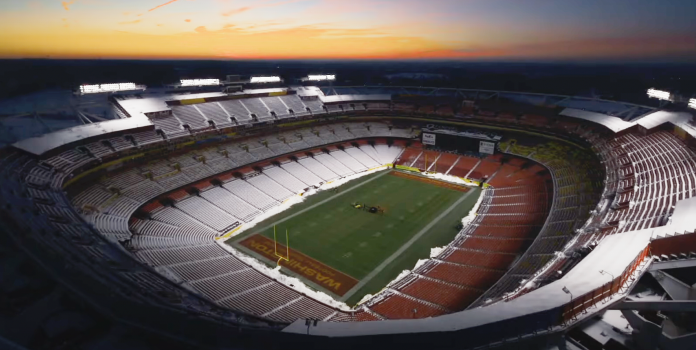(The Center Square) Over the next nine years, more than half of the stadiums in the National Football League will reach 30 years of age, or the age at which stadiums are generally replaced, according to economist J.C. Bradbury of Kennesaw State University in Georgia.
The model for replacement is trending more toward the taxpayer-supported efforts being pitched for the Tennessee Titans and Buffalo Bills than it is strictly team-owner funded stadiums such as the $5 billion SoFi Stadium in Los Angeles, home of the Chargers and Super Bowl-champion Rams.
“The fourth wave of stadium construction is upon us,” Bradbury said. “And it’s going to be building over the next few years and peaking at around 2030. That’s not just the NFL, that’s all the big sports leagues.”
Before SoFi, the most recent NFL stadium built was Las Vegas’ Allegiant Stadium, which received $750 million in public funding only four years after a new hockey arena for the Las Vegas Knights was built down the strip in 2016 with no taxpayer funding.
This year, the teams that struck quick got deals done, Bradbury said. While the Washington Commanders floated a stadium proposal first – a $3 billion plan that included a wavering amount of public funding from Virginia of $350 million to $1 billion or more died for the year in the Legislature on Thursday – it is the Bills and Titans that look like they will have new stadiums for the 2026 NFL season.
Buffalo received $850 million in public funding with $600 million from New York state and $250 million from Erie County for a new estimated $1.4 billion stadium. The Titans are expected to receive $500 million from Tennessee and $1 billion from state and Nashville taxes for $1.5 billion in public funding on an estimated $2.2 billion stadium.
That came after a 2017 Nashville study estimated that Nissan Stadium, completed in 1999, would require $293.2 million in capital improvements over 20 years.
“The Buffalo Bills are getting extravagant subsidies,” said Michael Farren, a senior research fellow at George Mason’s Mercatus Center. “They were going to get the biggest NFL subsidies ever. For about one week they held that title. … If the Senate version had gone through, Virginia would have been the new champion of overpaying for stadium subsidies.”
Maryland, meanwhile, has pledged $1.2 billion to split and renovate the Baltimore Ravens’ M&T Bank Stadium (opened in 1998) and the Baltimore Orioles’ Camden Yards (opened in 1992).
Both the Denver Broncos, expected to soon be approved for new ownership led by Walmart heir Rob Walton and son-in-law Greg Penner, and the Cincinnati Bengals have already floated the idea of new stadiums this spring.

